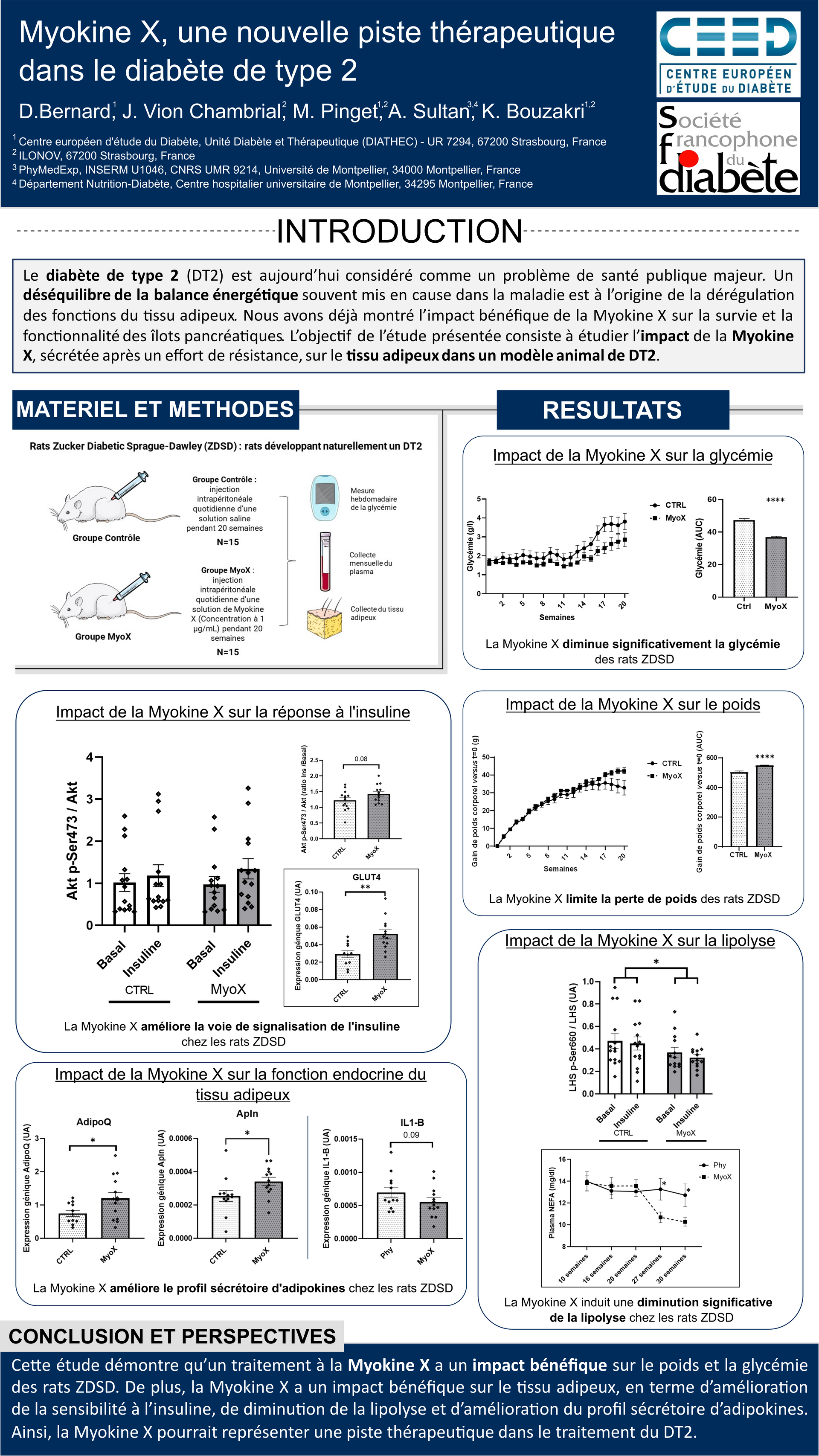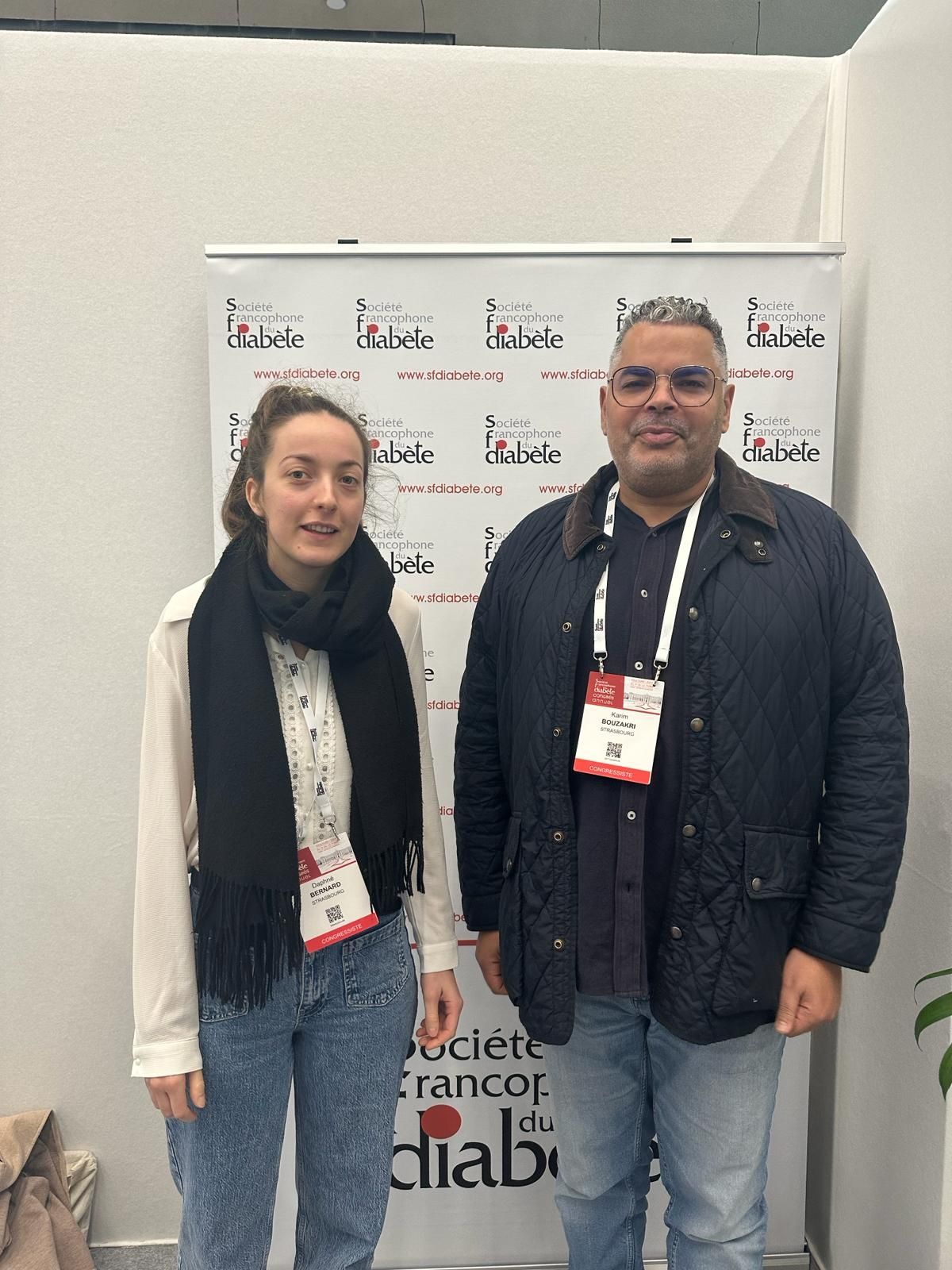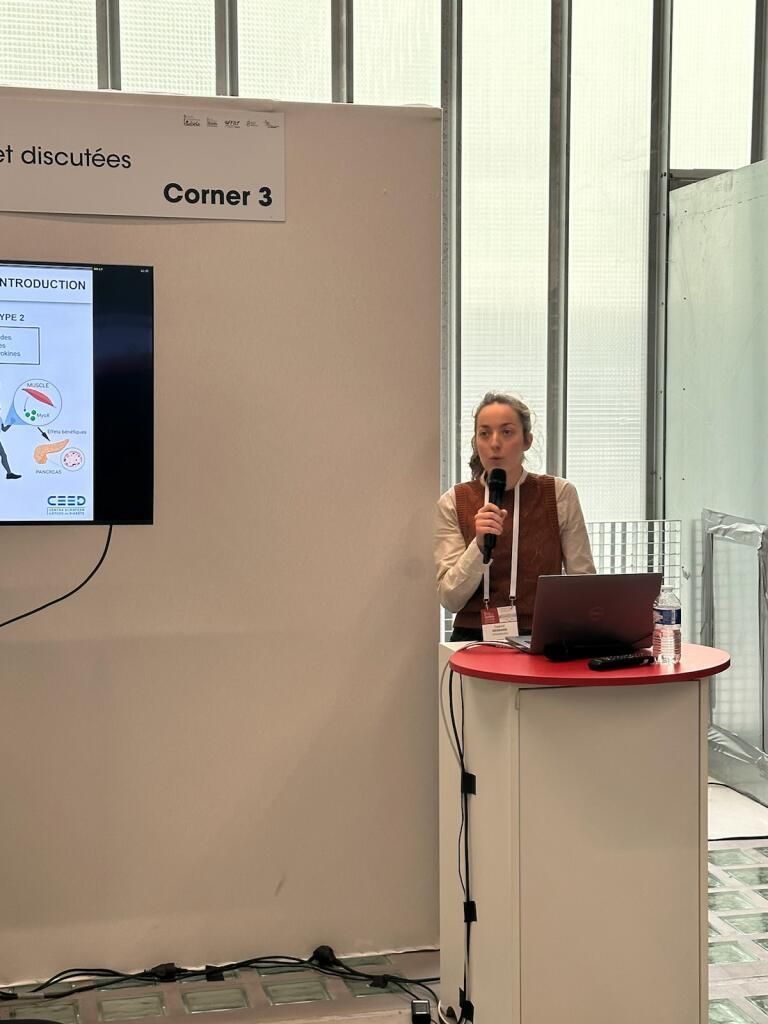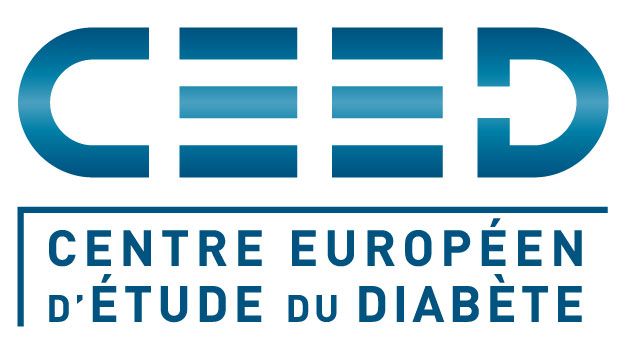Société Francophone du Diabète (SFD) 2024 in Toulouse, FR
March 19-22 2024
Dr Karim Bouzakri, our laboratory director, and Daphné Bernard, PhD student, were in Toulouse for this major medical congress organized by the French-speaking Diabetes Society (SFD).
Daphné Bernard presented her study consisting in studying the impact of a myokine secreted by muscle after physical exercise, the Myokine X (MyoX), on adipose tissue of a type 2 diabetes (T2D) rodent model.
This work is integrated in her PhD project with the aim of studying the role of physical exercise on adipose tissue – pancreas crosstalk in a context of diabetes. Indeed, an energy imbalance is often involved in the type-2 diabetes and leads to adipose tissue dysfunction worsening the disease and leading to complication. Thus, the need to find new therapies, targeting adipose tissue, is necessary.
This was for Daphné her first opportunity to present her work in a congress. Apart from having a chance to present her project in front of other specialists, the different talks she attended were also instructive for the continuation of her project.
Abstract :
Myokine X, a new therapeutic approach for type 2 diabetes
Introduction:
Type 2 diabetes is now recognized as a major public health issue. In a context of hyperglycaemia and excess of fatty acid intake leading to the disease, adipose tissue functions are dysregulated. We have already demonstrated the beneficial impact of Myokine X on pancreatic islets survival and functionality. This study aims to investigate the impact of Myokine X, which is secreted after a resistance effort, on adipose tissue of a rodent model of T2D.
Material and methods : Zucker Diabetic Sprague-Dawley (ZDSD) rat, naturally developing type 2 diabetes, received a daily peritoneal injection of either a saline solution (control group) or a Myokine X solution at 1 µg/mL for 20 weeks. Animals were sacrificed at the end of the 20 weeks and adipose tissue was analysed by western blotting or by qPCR for gene expression.
Results:
Myokine X treatment revealed (i) an impact on insulin pathway with an increase of 16.5% of Akt p-ser473 phosphorylation capacity, with simultaneously a significant increase of 78% for GLUT4 mRNA expression, (ii) a significant decrease of HSL phosphorylation on ser660 (-24%), (iii) an increase of adipokines mRNA expression with beneficial impact on insulin pathway.
Conclusion:
This study shows that Myokine X treatment had a positive impact on adipose tissue in a rodent model of T2D, in terms of insulin sensitivity improvement, HSL activation decrease and improvement of adipose tissue secretion, adipokines. Thus, Myokine X could represent a therapeutic approach for T2D treatment.
